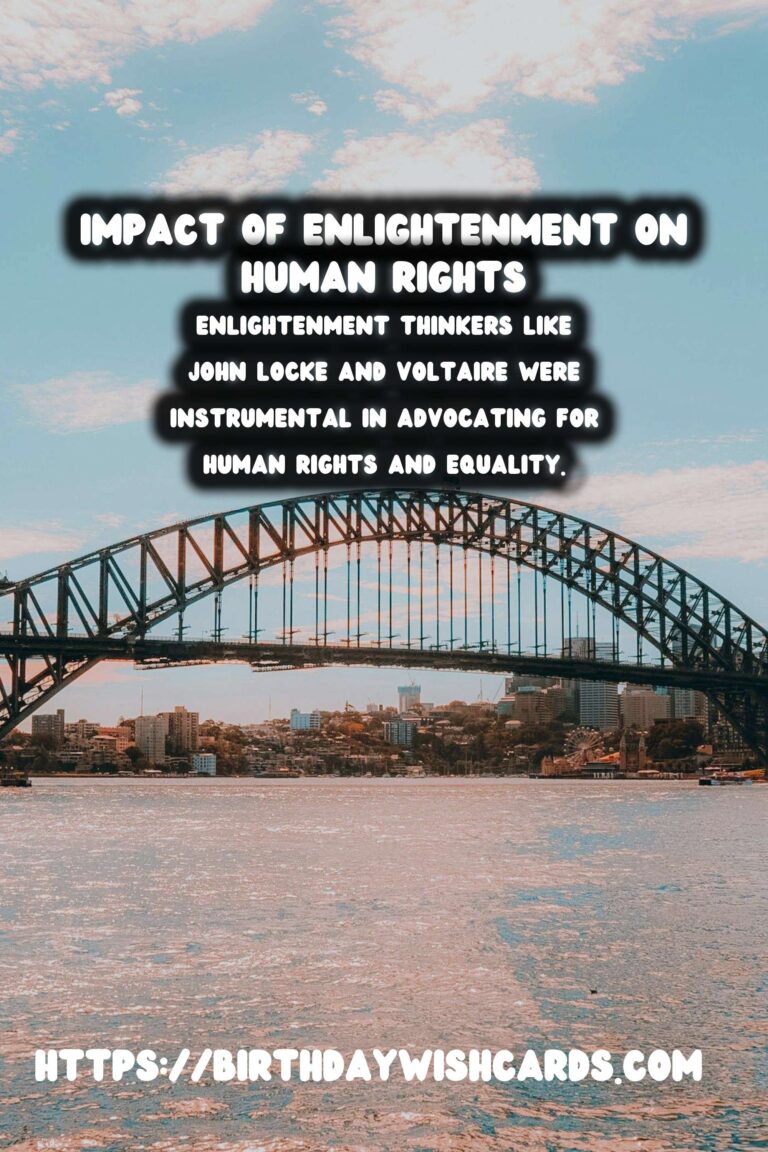
The Age of Enlightenment, also known as the Age of Reason, was a pivotal period in history that stretched from the late 17th century to the early 19th century. This era was characterized by an intellectual and philosophical flourish that emphasized reason, logic, and science as the primary sources of authority and legitimacy. Enlightenment thinkers sought to liberate humanity from the constraints of tradition and superstition, leading to profound changes in political, economic, and cultural life.
One of the most significant contributions of the Enlightenment was the advancement of human rights. Enlightenment philosophers championed the idea that all individuals are created equal and possess certain inalienable rights. This groundbreaking perspective laid the foundational principles upon which modern conceptions of human rights are built.
The Philosophical Foundations
Central to the Age of Enlightenment were figures such as John Locke, Voltaire, Jean-Jacques Rousseau, and Montesquieu, whose writings and ideas were instrumental in shaping the movement. Locke’s ‘Two Treatises of Government’ argued that individuals hold natural rights to life, liberty, and property, and governments exist to protect these rights. If a government fails in this duty, citizens have the right to revolt and establish a new government that will safeguard their rights.
Voltaire passionately advocated for freedom of speech and religion, and his critiques of authoritarianism and religious intolerance resonated throughout Europe. Likewise, Rousseau’s concept of the ‘social contract’ suggested that legitimate governments are founded on the consent of the governed and should reflect the general will.
Impact on Politics and Society
The Enlightenment’s influence on political thought was profound. It inspired revolutions and reforms across the globe, including the American Revolution and the French Revolution. The Declaration of Independence (1776) and France’s Declaration of the Rights of Man and of the Citizen (1789) both clearly reflect Enlightenment principles. These documents called for sovereignty and equality, advocating the idea that power should derive from the people and not be imposed by monarchs or tyrants.
Beyond revolutions, the Enlightenment planted the seeds for later developments like the abolition of slavery, the expansion of suffrage, and greater equality for women. It sparked a movement towards inclusive democracy, urging societies to rethink the status quo and consider more egalitarian forms of governance.
Legacy of Human Rights
The universality of human rights as envisioned by Enlightenment thinkers culminated in the 20th century with the United Nations’ adoption of the Universal Declaration of Human Rights in 1948. This document reflects a global consensus on dignity, freedom, and justice, echoing the Enlightenment ethos that all human beings are entitled to fundamental rights and freedoms.
Today, the principles espoused during the Enlightenment continue to be a critical reference point for human rights advocacy globally. As societies strive to resolve contemporary issues such as privacy rights, environmental justice, and digital freedom, the legacy of the Enlightenment endures as a testament to human progress and the enduring appeal of reason and ethics.
Conclusion
The Age of Enlightenment profoundly reshaped the worldview of societies, instilling a belief in the power of human thought and ingenuity to bring about change and justice. Its impact on human rights is undeniable, laying the groundwork for modern democratic institutions and global human rights frameworks that seek to foster equality and freedom for all individuals. In acknowledging its legacy, we continue to derive inspiration from its ideals as we navigate the complexities of the modern world.
The Age of Enlightenment was characterized by an intellectual movement that emphasized reason and science. Enlightenment thinkers like John Locke and Voltaire were instrumental in advocating for human rights and equality. 
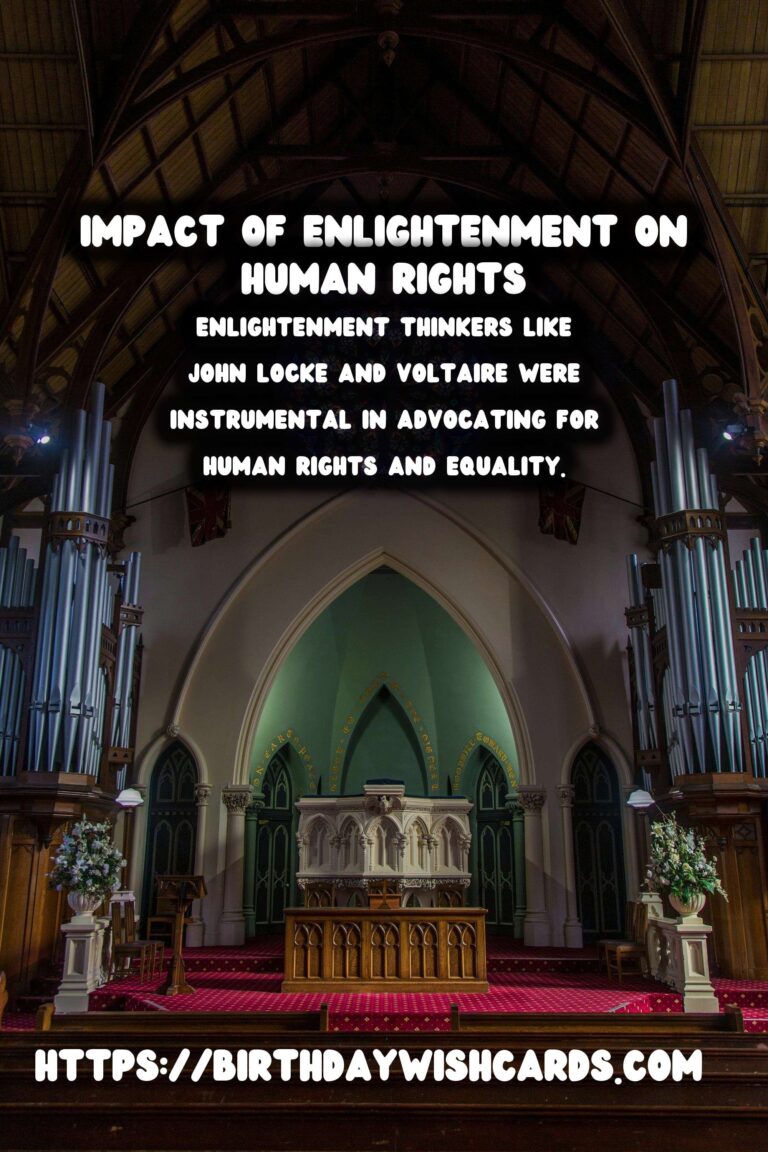
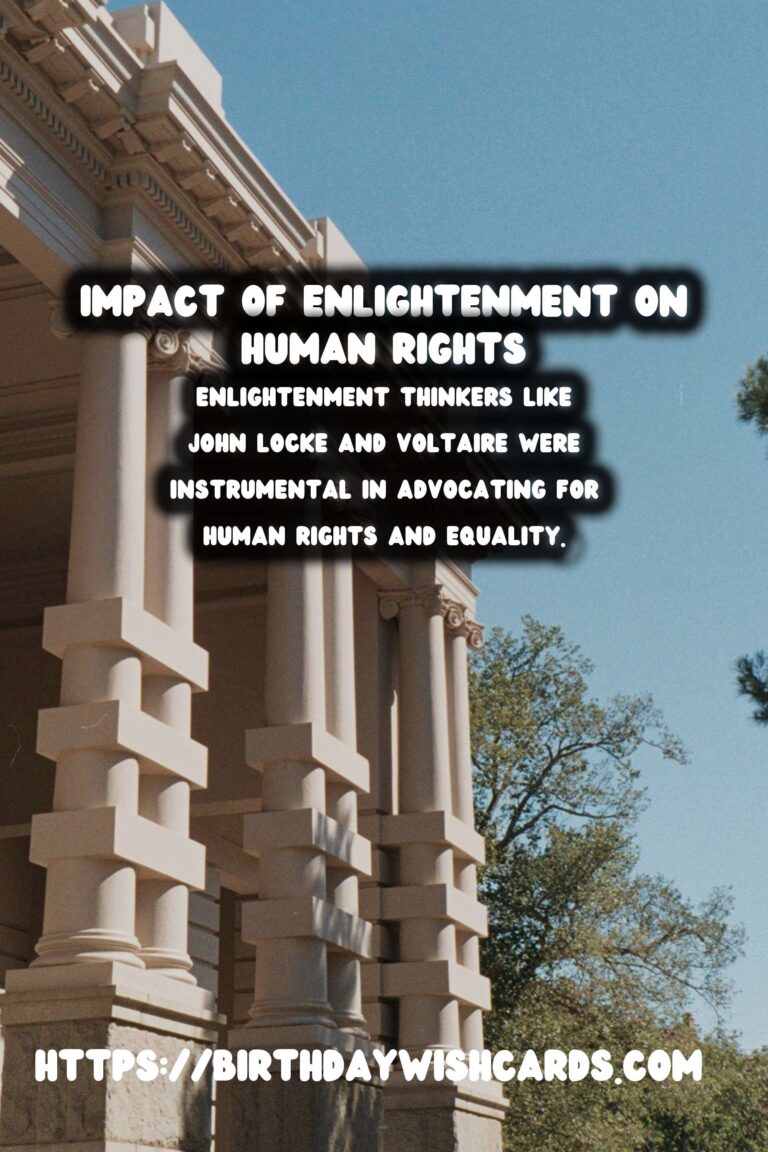
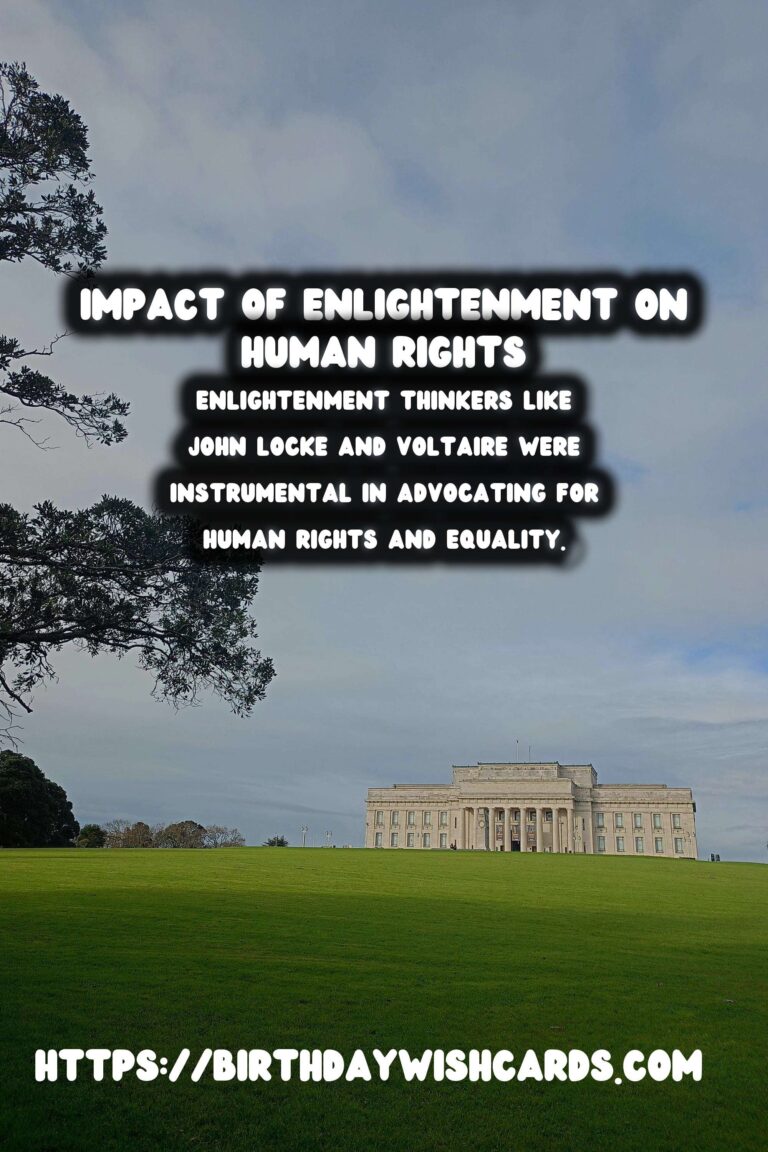
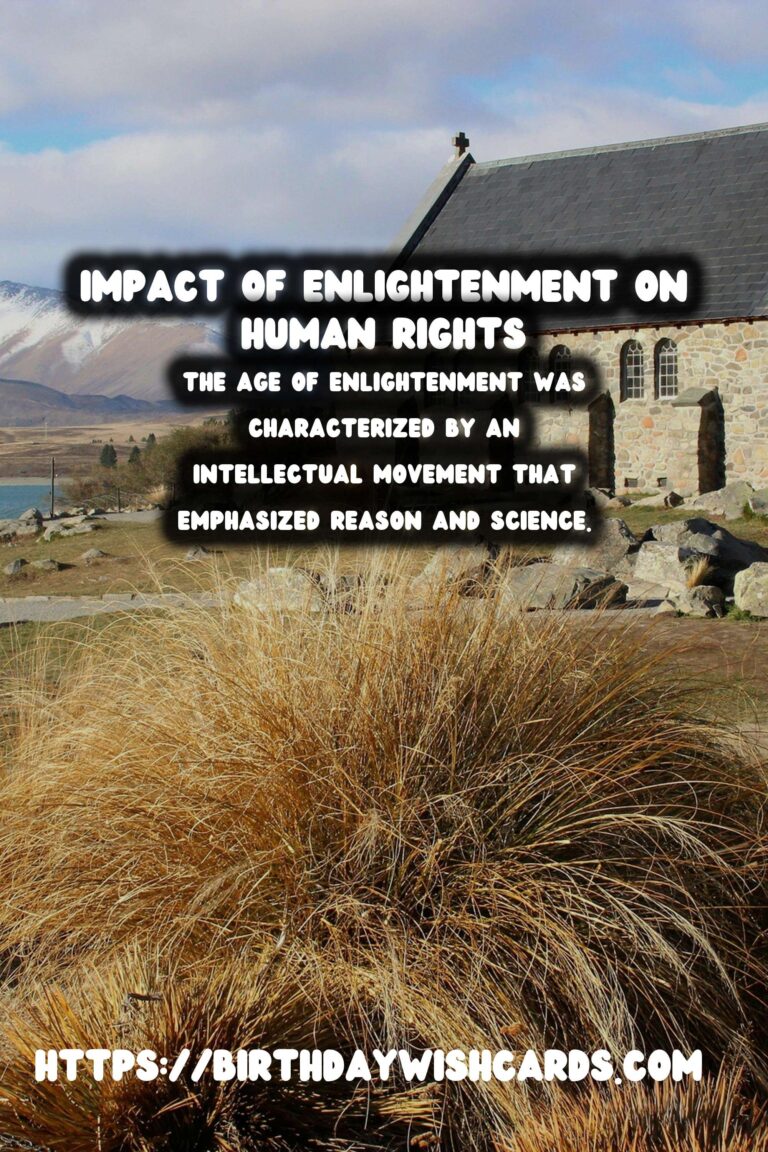
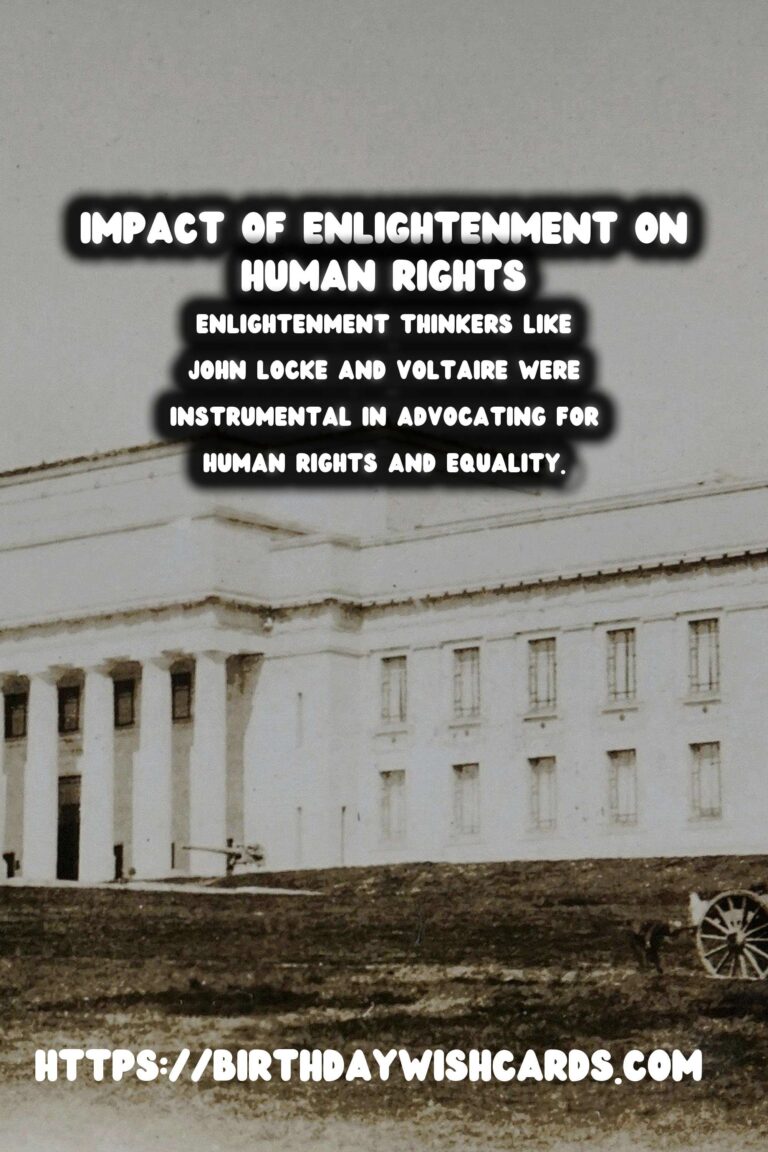
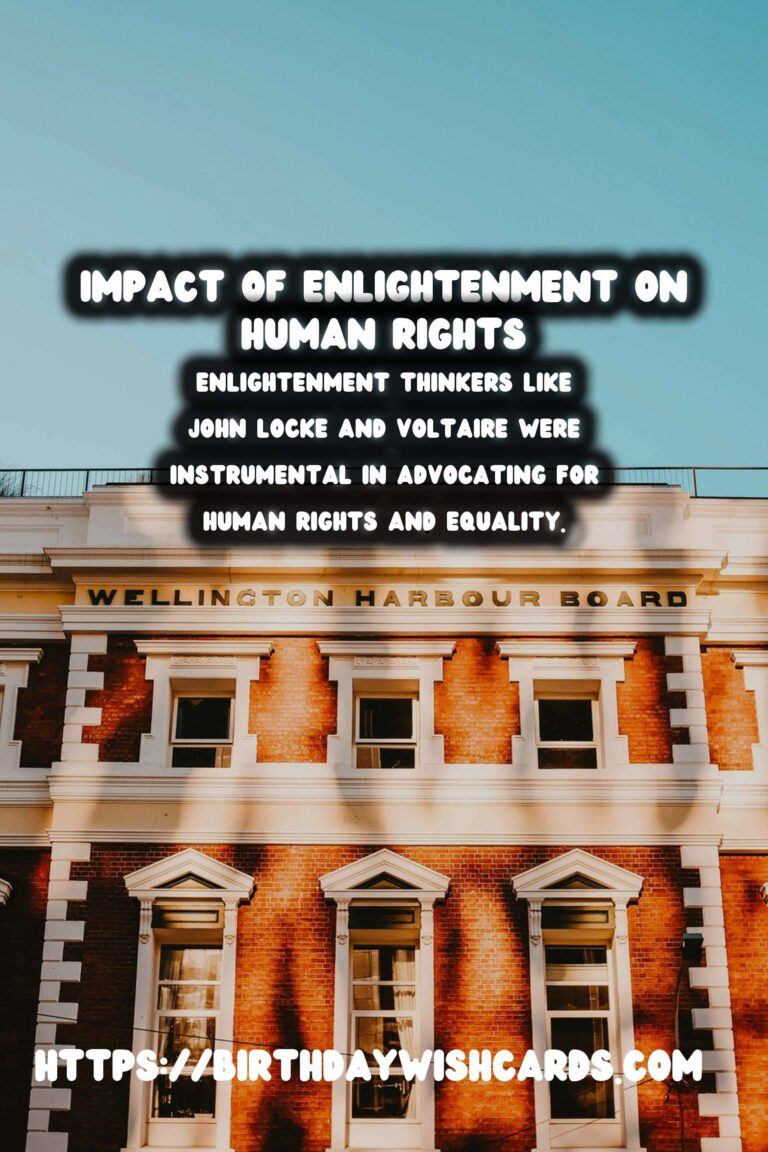
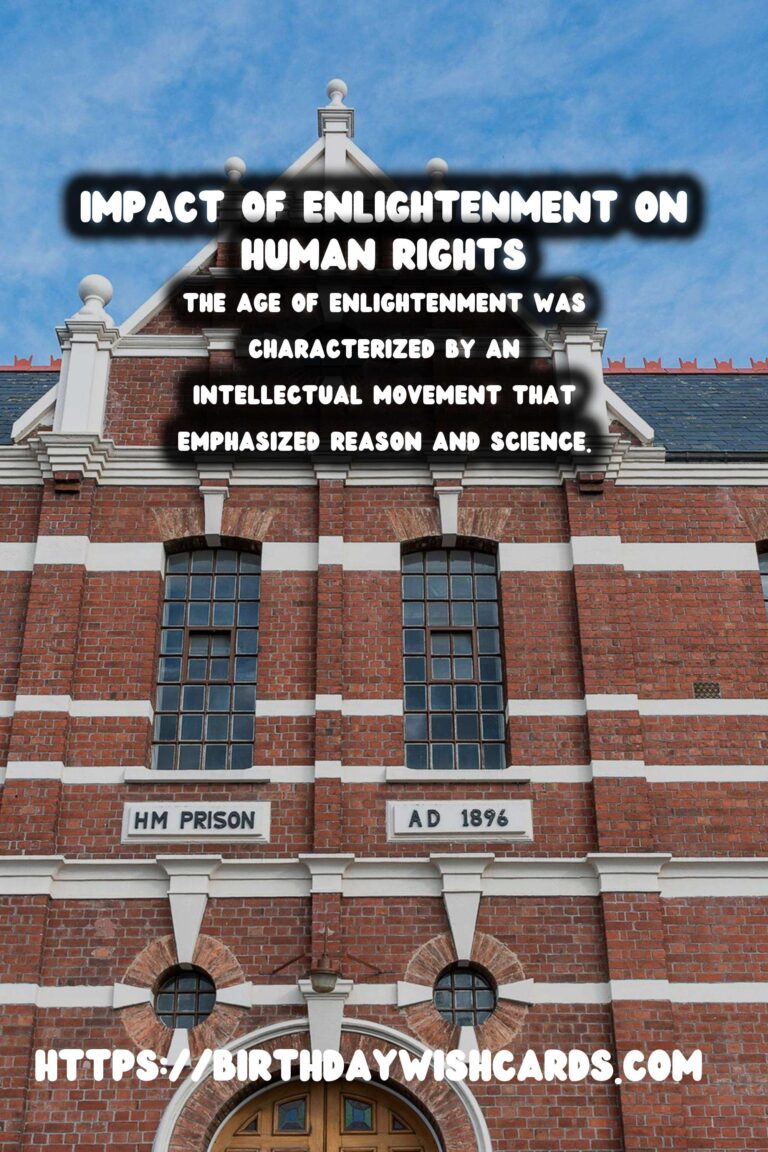
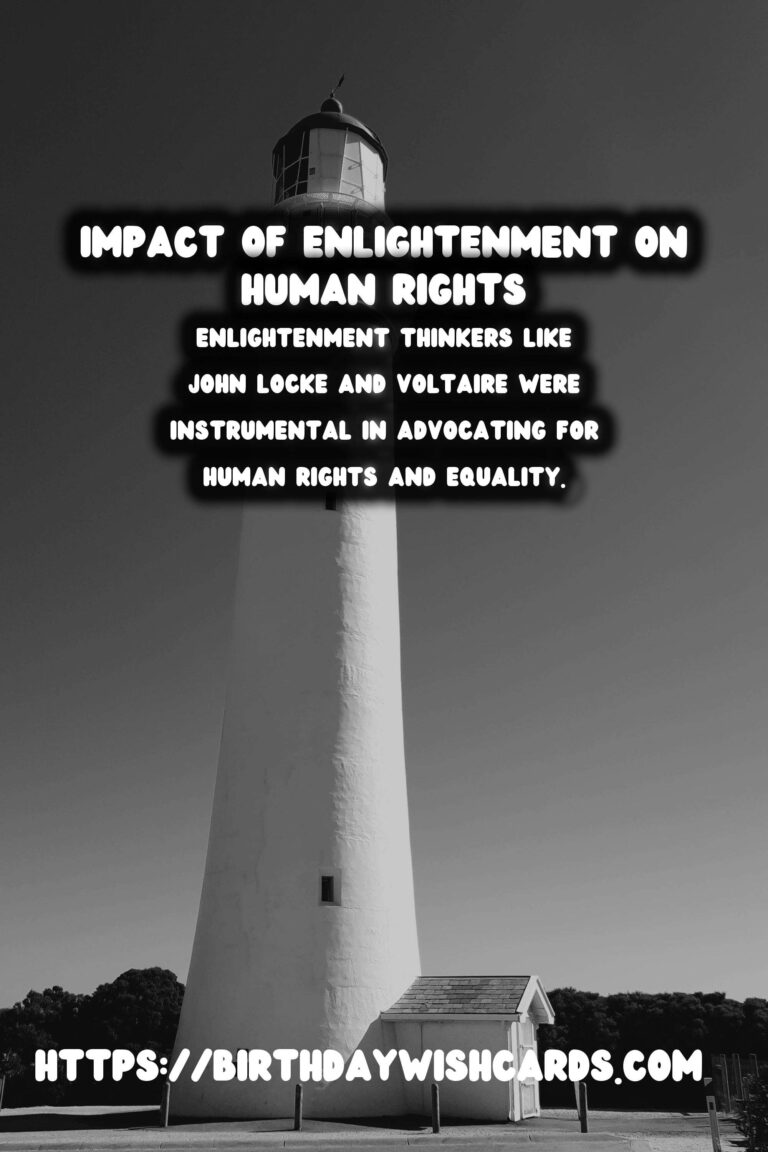
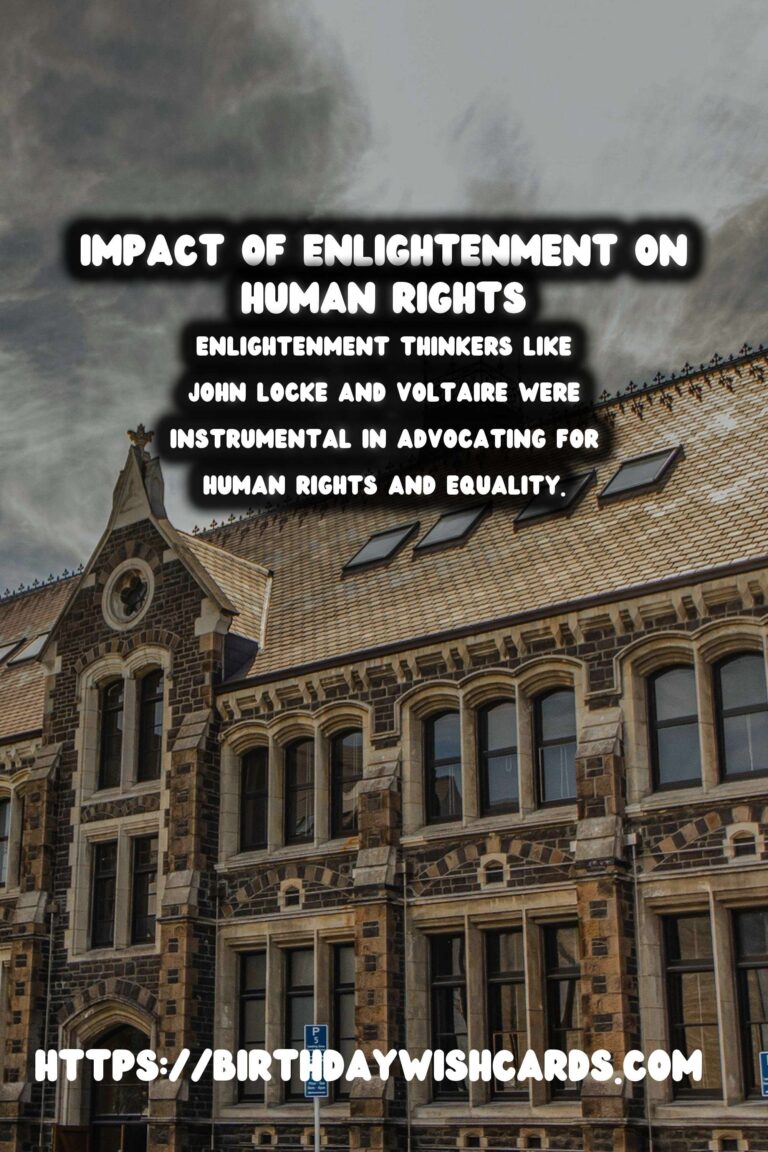
#Enlightenment #HumanRights




